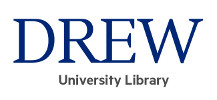 Library Guides
Library Guides Library Guides
Library Guides
Fact-check like a pro with “Four Moves and Habit” from Michael Caulfield’s free book, Web Literacy for Student Fact Checkers… and other people who care about facts (https://webliteracy.pressbooks.com/) See image of related infographic below and linked as PDF above.

Recommended fact-check sites:
More.....
"Top 10 sites to help students check their facts"
This list, from the International Society for Technology in Education, includes other fact-checking websites

Different news outlets-- and different subject area publications-- address a topic in different ways. In some cases, that is due to ideological leanings (usually of their target readership)-- in other, it's due to the very nature of the subject. Time Magazine, The Economist, the Chronicle of Higher Education, the Communications of the Association for Computing Machinery, and Research in the Teaching of English will all address the idea of young people's digital participation in different ways.
Questions? Need Help? Email reference@drew.edu
Drew University Library, http://www.drew.edu/library